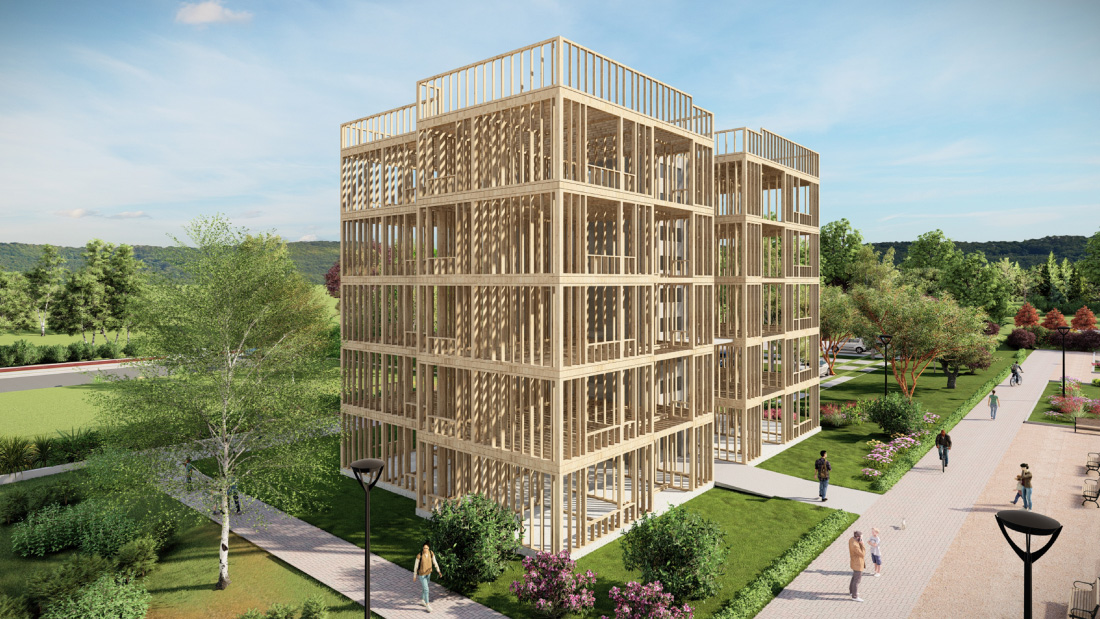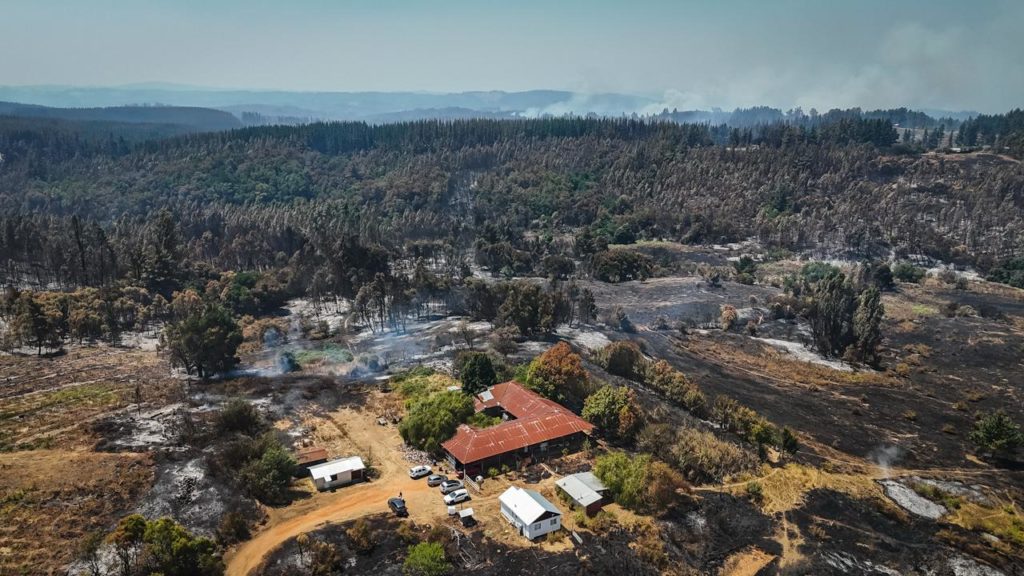In a region that holds one of the most important forestry heritages in the country, a group of architects and researchers presented an innovative proposal that seeks to change the way we build: ProDuramen, a mid-rise structural timber construction project developed in La Araucanía by Equipo Jaspard Arquitectos after more than two years of research and technical validation.
The initiative, presented to authorities, businesses, academics, and representatives of the forestry sector, offers a concrete, efficient, and scalable solution to Chile and Latin America's housing deficit. Through a mixed structural model—featuring a central concrete core with the rest of the building constructed using treated radiata pine—ProDuramen aims to industrialize sustainable housing construction with lower costs, better thermal performance, and faster execution.
"What we propose is a certified lightweight timber framing system capable of meeting the most demanding thermal, acoustic, and seismic standards. This technology also allows for faster prefabrication and installation, drastically reducing timelines and costs," explains Henri Jaspard, the architect in charge of the design.
The structure includes metal connectors that control wood flexibility during earthquakes and an ecological treatment using micronized copper impregnation, eliminating risks of rot or termites. Walls and ceilings feature fiberglass thermal insulation, ensuring energy-efficient thermal comfort in all regions of the country.
A proposal backed by technical and territorial support
The project's presentation coincided with Chile's recent recognition at the World Conference on Timber Engineering in Australia, where the country was highlighted as an emerging hub for sustainable construction. In this context, La Araucanía emerges as fertile ground to lead this transformation, given its forestry expertise, raw material availability, and a network of over a thousand sawmills between Valparaíso and Magallanes.
"We are very interested in this type of initiative because it offers a faster and more sustainable response to the housing problem. Here in the region, we have the materials, industrial capacity, and prepared companies. The challenge is scaling it," said Patricio Escobar, La Araucanía's Housing Seremi.
From the National Center of Excellence for the Timber Industry (CENAMAD), architect Fabiana Lorca emphasized that "wood is ideal for prefabrication, and its carbon footprint is very low. Given the housing deficit, leveraging this installed capacity in southern Chile is key."
Economic, social, and environmental advantages
Unlike reinforced concrete, buildings made with lightweight timber framing weigh up to five times less, allowing for simpler foundations and adaptability to previously unbuildable terrain. Additionally, these buildings offer better energy efficiency, lower climate control costs, and reduced construction waste.
"Wood is the material of the future: it's sustainable, prefabricable, efficient, and generates less waste. Initiatives like ProDuramen prove that architecture and industry can work together to create real solutions," said Carolina Hurtado, manager of Madera21.
Meanwhile, Marcelo Bonnefoy, regional manager of CORMA, highlighted that fire-resistant solutions and certified materials now enable wood to reach new standards in mid-rise construction. "What's missing is for more developers and real estate companies to take the leap," he added.
A similar call was made by Francisco Javier Almagro, project lead at Jaspard Arquitectos: "We have a proven, solid, industrializable proposal that reduces costs and timelines. Now we need the private sector to dare to adopt it."
A national opportunity
With over 900,000 m³ of structural timber produced annually in Chile and 60,000 m³ already certified, the potential to scale this technology is real. Betting on mid-rise timber construction could transform the industry, decentralize construction, and position southern Chile as a leader in sustainable, cutting-edge housing models.







Comments (0)
No comments yet. Be the first to comment!
Leave a comment